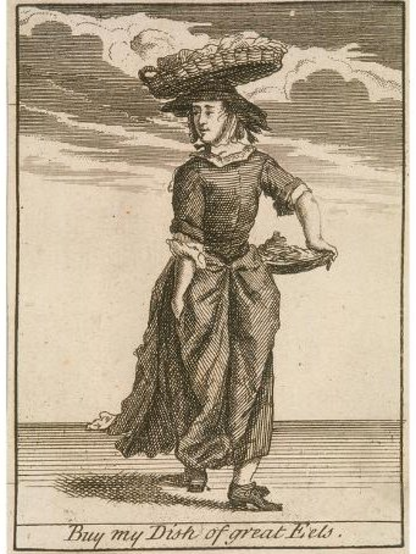
“How do say thanks to a good friend? Well…if you’re a medieval English bishop, you send an eel! It was common practice for bishops and other high ranking clergymen to show their respect for each other by sending gifts of ‘great eels.’ Because lesser eels just won’t do!”
“The medieval bishops of Lichfield held rights to the fishing in the town’s ponds. Though the bishops rented out the pools, they maintained the right to take eels for their personal use. In 1501 the Bishop even hired a local fisherman to send him eels when he was in London!”
“The area around Ely has historically been a great eel habitat, and local fishermen caught them in huge numbers. At the end of the 11th Century, the Abbot of Ely collected 108,933 eels per year in rent payments from local tenants.” “The city enjoys this history! Since 2004 the city has held an annual Eel Festival Weekend, with an eel throwing competition (stuffed toy eels), eel-themed crafts, and a parade w/ a giant eel puppet.”
“In the 1250s Glastonbury Abbey employed a guy whose job was to go around the abbot’s waterways & take the best eels from any fishermen he found.” “The fishermen could go to the abbey later to get paid, but it wasn’t a good deal. They got roughly 1/2 market price, and some bread. The fishermen weren’t happy about this; the records call them ‘klammatores’…people who shout & pitch a fit.”
“In medieval London, everyone from kings to peasants ate eels. But by the 19th C eels had largely become a street food. In 1851, London imported 9.8 million live eels per year (mostly from Holland). 70% went to street vendors selling hot buttered eels in poorer parts of the city.”




